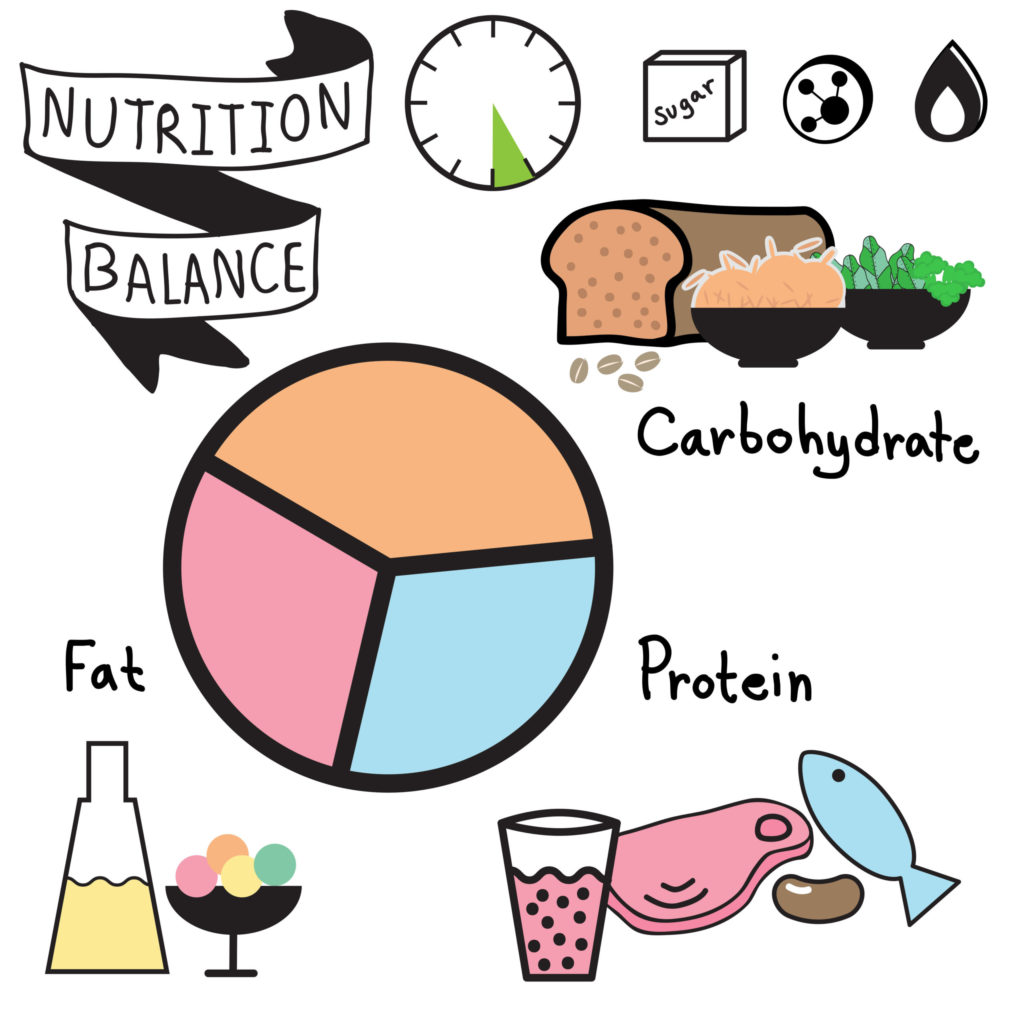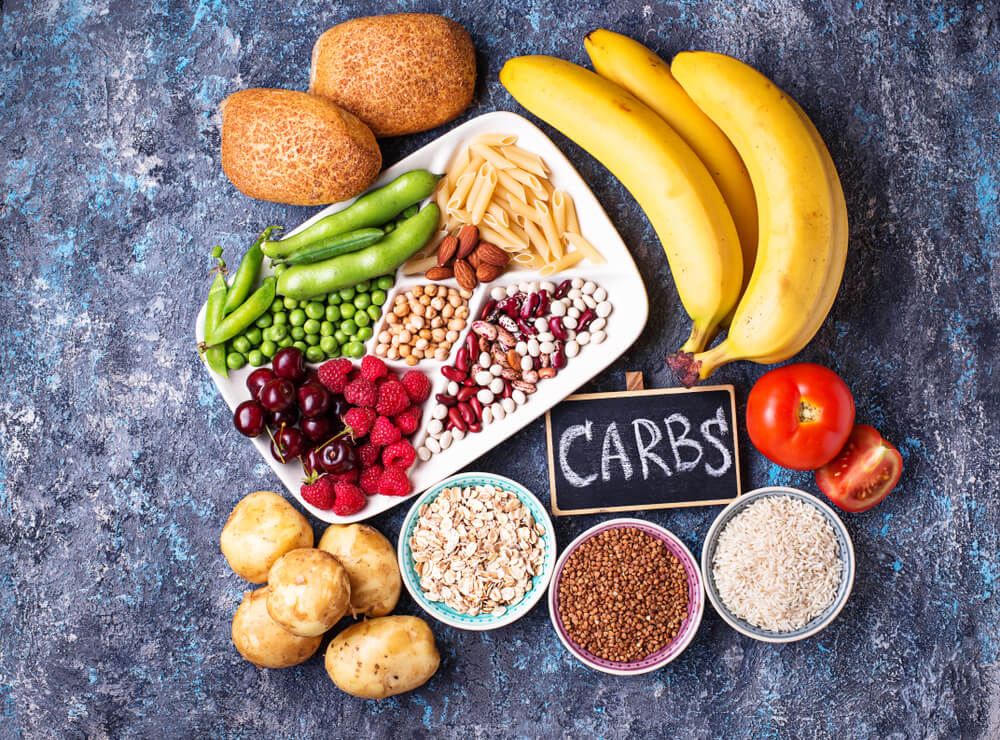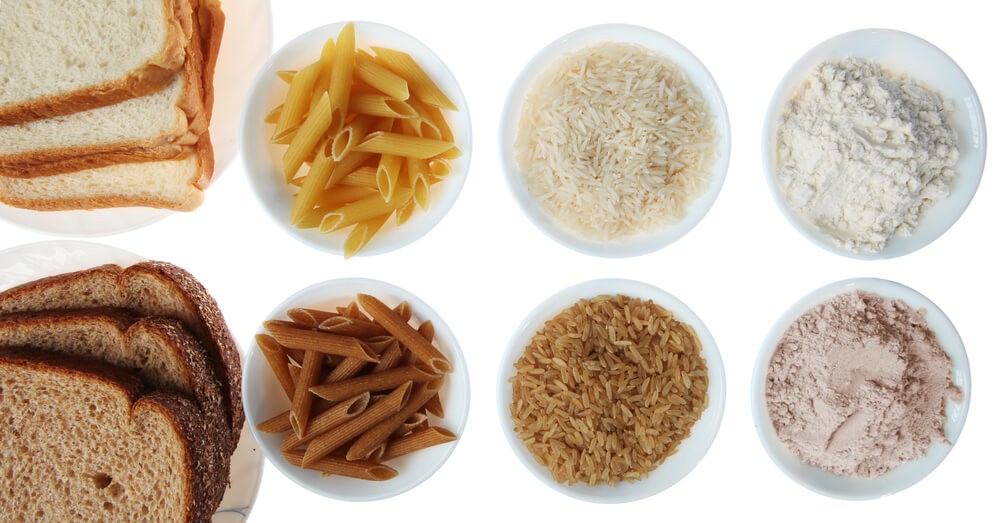The Difference Between Simple And Complex Carbohydrates

The latest trend today are diets that focus on cutting down on carbohydrate intake in order to lose weight and shed fat. For example, the ketogenic diet (keto) and Atkins programs usually set a strict limit off consuming around 20-25 carbs per day.
Unfortunately, what many people don’t realize is that not all carbs are bad. There are, in fact, “good” carbs and there are “bad” carbs — and understanding that cutting back on the bad carbs and replacing them with the good ones is a great first step towards understanding diet and nutrition!
In fact, carbohydrates are not only an important part of a healthy diet, but when eaten in the right amounts and in the right form, they may actually help your weight loss efforts!
In our new blog article, NJdiet explains the differences between simple and complex carbs, so you can make the best dietary choices — as well as gain optimal control over your nutrition!
The Importance Of Carbohydrates In A Healthy Diet

Carbohydrates is one of your body’s most important source of energy. Carbs are used to produce glucose, which provides the energy necessary for a wide range of functions, from temperature regulation and muscle contraction to red blood cell production and brain functioning. In fact, according to the U.S. National Library of Medicine at the National Institutes of Health, while other organs can also use both fat and protein as an energy source, your brain and red blood cells prefer glucose for energy.
Additionally, avoiding carbohydrates completely can actually be harmful to your health, as doing so may increase the risk of heart disease.

Simple Carbohydrates
Simple carbohydrates cause your blood glucose levels to rise more quickly than complex carbohydrates do. Simple carbs should generally be avoided because they consist of the most basic sugars that are the easiest for the body to digest. As a result, they don’t keep you feeling full for very long, which can result in over-eating.
Simple carbs also cause insulin to rise too quickly, which causes blood glucose to then drop very quickly — leaving you feeling hungry and prone to overeating, potentially leading to weight gain. If you develop consistently high levels of insulin, you may become insulin resistant, leading to other serious health conditions, such as Type 2 diabetes.
Simple carbs are those that come primarily from sugars, sometimes occurring naturally (for example, milk and dairy), but the majority of the simple carbs come in the form of added sugars, corn syrup, and glucose. Some examples of foods high in complex carbs include:
- Added sugars (including high fructose corn syrup and ingredients ending in –ose (dextrose, fructose, glucose, maltose, sucrose, etc.)
- Candy
- Sweetened beverages, such as soda and fruit juice
- Canned fruit in syrup
- Cookies and crackers
- Ice cream and similar dairy desserts
- Syrups
- Table sugar
- White bread, white pasta and white rice
One exception of simple carbs being beneficial to your diet is the consumption of fresh fruit. Strawberries and melons, considered simple carbs, contain natural sugars and are still relatively low in carbohydrates — so eating one-two servings of fresh fruit daily should not negatively affect your diet.
Otherwise, eliminating or reducing your intake of all other types of simple carbohydrates is recommended, as they may lead to weight gain, diabetes and heart disease if eaten in excess.

Complex Carbohydrates
Complex carbs differ from simple carbs primarily in the sense that they’re comprised mostly of fiber rather than sugar, potentially helping to lower your risk of cardiovascular disease. Fiber is much more difficult for the body to digest and takes longer to do so, which means that foods that complex carbs tend to keep you feeling fuller for longer. The fiber in complex carbs may also help prevent obesity and Type 2 diabetes, and is important for your digestive health. In fact, research has also shown that a diet rich in complex carbohydrates can lead to reduced body weight and body fat while improving insulin function.
Complex carbs are ideal for those who are looking to lose weight; without feeling hungry throughout the dieting process. Fiber also may provide an energy boost, which makes fiber-rich foods a great middle-of-the-day snacks to help you avoid that afternoon crash.
Some examples of foods high in complex carbs include:
- All non-starchy vegetables; for example asparagus, broccoli, carrots, cauliflower, tomatoes.
- Beans and legumes; for example black, garbanzo, kidney, pinto and white beans; edamame; lentils; and black-eyed, green and split peas
- Nuts
- Starchy vegetables such as corn and potatoes
- Whole grains, including barley, brown or wild rice, oats, quinoa, whole-grain bread, whole-grain pasta and wheat
Some studies have also shown that complex carbs can help reduce your risk of developing type 2 diabetes and cardiovascular problems.

Making The Right “Carb Choices”
Making the right food choices isn’t always easy, even when you understand the difference between simple and complex carbs.
Nutritional labels don’t differentiate between the two types of carb, so when you’re shopping at the grocery store, there are ways to be sure purchase the best items that contain complex carbs as opposed to simple carbs.
By looking at nutrition labels and compare the sugar content to the fiber content, but a good rule of thumb to follow is that foods higher in fiber most likely contain complex carbs, whereas those with a higher sugar content (or with any “added” sugars) should probably be avoided because they contain simple carbs.
For example, one of the easiest ‘swaps’ to help limit simple carb consumption is by simply swapping out white breads and rice, and instead buying whole grain breads, pastas, and rice. Additionally, increasing your intake of leafy greens is also a great way to boost your complex carb intake without adding a lot of calories in the process!
* * *
As you can see, the differences between simple and complex carbs are numerous — and by eating more complex carbs, it may actually be easier to achieve your weight loss and fitness goals more quickly. As always, moderation is the key to success for any diet plan!

NJdiet is here to help you lose weight and get healthier! Every factor regulating metabolism, appetite, fat storage & fat burning is carefully energetically tested for success. Using DNA Testing over 40 different factors are assessed genetically. We help you not only keep the fat off, but to stay healthy.
Our program is not only aimed at promoting healthy weight loss, but aims to improve your total wellness — where the side effect is weight loss, but the end result is better overall health and well being!
At your initial evaluation and consultation at NJ Diet, we will explain how many metabolic factors are assessed to genetically make sure you not only lose the weight, but ensures you keep it off and stay healthy for a lifetime.
Attending the Initial Evaluation and Consultation is normally $99, but by registering on our website it will only cost $27!
We welcome the opportunity for you to have a consultation with us, so register online now!
